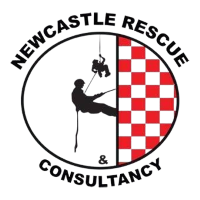
How do I become a rail worker?
Certificate II in Rail Infrastructure
- There are no mandated entry requirements.








Safely access the rail corridor
- There are no mandated entry requirements.








Certificate IV in Rail Infrastructure
- Completed Certificate III in Track Protection OR Certificate III in Rail Structures OR Certificate III in Rail Infrastructure or equivalent qualifications OR
- Evidence of relevant skills, knowledge and employment experience
 The Instruction Company
The Instruction Company
Related occupations
Track Worker
A Track Worker maintains railway lines by installing and repairing tracks, conducting inspections, and ensuring safety procedures are followed.
Rail Protection Officer
A Rail Protection Officer ensures the safety of rail workers by implementing procedures, conducting risk assessments, and maintaining clear communication during operations.
Railway Shunter
Railway Shunters prepare trains for service by managing carriages and conducting safety checks while ensuring timely train movements.
Senior Track Worker
A Senior Track Worker leads a team maintaining railway lines, overseeing inspections, repairs, and installations while ensuring safety and efficiency.
Signaller
A Signaller coordinates rail traffic movement using signals, requiring strong communication skills and the ability to manage multiple tasks effectively.
Rail Safety Manager
A Rail Safety Manager develops and oversees safety plans, conducts audits, ensures regulatory compliance, and responds to safety incidents while leading teams effectively.
Train Driver
A Train Driver operates passenger or freight trains, follows strict schedules, communicates with control, and ensures safety, requiring situational awareness and teamwork.
Train Controller
A Train Controller coordinates train movements using communication and signalling systems, authorising departures and managing emergencies while multitasking effectively.
Track Machine Operator
A Track Machine Operator drives equipment to maintain and repair railway tracks, conducting inspections, performing repairs, and laying new tracks as needed while ensuring safety and teamwork.
Common questions
How much does a Rail Worker earn?
In Australia, a full time Rail Worker generally earns $1,500 per week ($78,000 annual salary) before tax. This is a median figure for full-time employees and should be considered a guide only. As you gain more experience you can expect a potentially higher salary than people who are new to the industry.
What are the job opportunities for a Rail Worker?
This industry has seen moderate employment growth in recent years. There are currently 5,800 people employed as a Rail Worker in Australia, compared to 5,500 five years ago. Rail Workers may find work across all regions of Australia.
Source: Australian Government Labour Market Insights
How do I become a Rail Worker?
If you’re planning a career as a Rail Worker, consider enrolling in a Certificate II in Rail Infrastructure. You’ll address various topics including safety procedures and environmental protocols. This course allows you to specialise in track work, track surfacing, structures or train and light rail. A Certificate IV in Rail Infrastructure may also be appropriate.
Further reading


How to start a career in Warehousing
3rd November 2021)

